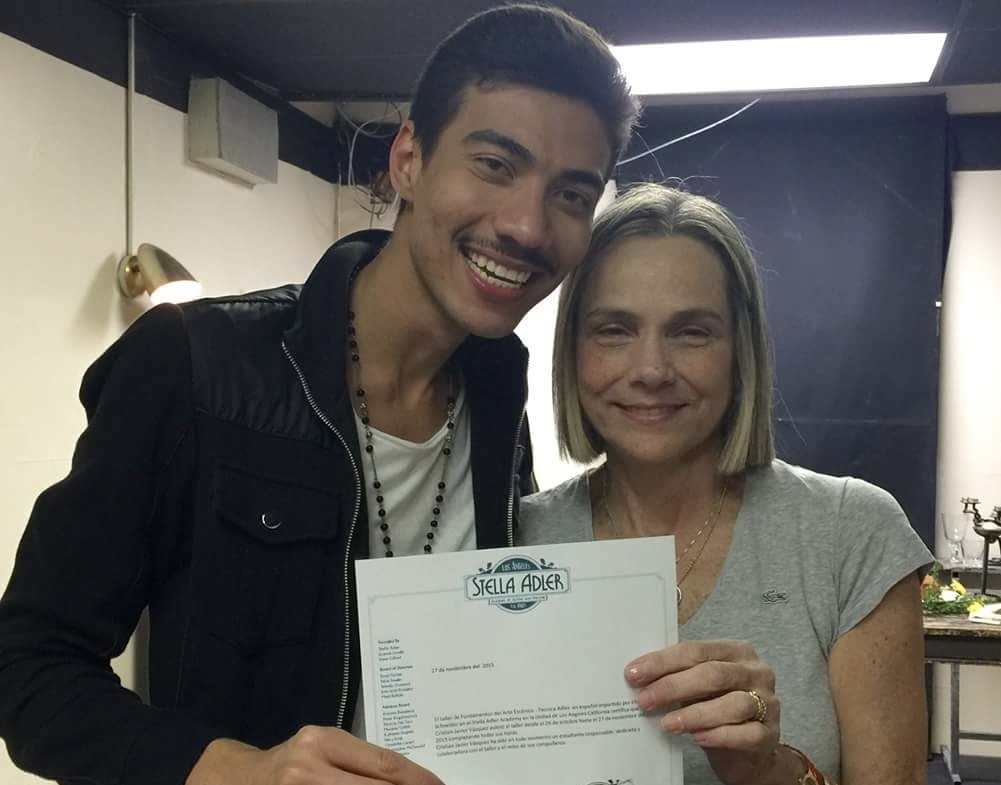(RENO, Nev.) — Chris Lambert’s transformation from a musician to an investigative force in the Kristin Smart case is a testament to the impact of advocacy journalism. Through his podcast “Your Own Backyard,” Lambert dives deep into the unsolved disappearance of Smart, a Cal Poly student last seen in 1996. His journey begins with a simple yet profound trigger—a billboard reminder of the case that, despite the years, remains unresolved.
Driven by a quest for truth and justice, Lambert’s work transcends traditional journalism. As he navigates through interviews, legal documents, and the personal stories of those affected by the case, his podcast becomes more than just a series of episodes; it evolves into a crusading platform for Smart and other victims of violence. Lambert’s role blurs the lines between journalist, advocate, and storyteller, demonstrating the power of individual initiative in seeking justice outside of traditional media.
THE ADVOCATE
His podcast, “Your Own Backyard,” has advanced efforts to solve Smart’s disappearance. Leveraging his platform since 2019, Lambert has drawn attention to Smart’s story and mobilized support for seeking justice. His commitment is evident as he amplifies the call for resolution and motivates listeners. An episode recounts the revival of a once-dedicated supporter’s efforts to find Smart. Lambert’s work exemplifies advocacy in action, turning a podcast into a powerful tool for change and, in some cases, re-energizing others as they join the search for clues.
In episode one, Lambert sets the tone for his project, explaining his rationale, and using transparency by narrating in detail his first encounter with Smart’s family and friends. He wants to see life through Smart’s eyes by thoughtfully inserting himself into her life and being around those who know her best. Professional journalists use transparency to describe their work to the public and gather information responsibly, according to the Society for Professional Journalists Code of Ethics.
Lambert achieves transparency by including audio clips of his interviews. He explains his process and decision-making throughout the podcast. For example, he describes his ambivalence when speaking with Smart’s family, knowing they had spent plenty of time with news organizations, yielding nothing more than victim-shaming and sensationalism when the story first made headlines.
Lambert assures listeners that his purpose is to be Smart’s voice. Lambert does this throughout his podcast to define his role as an advocate, allowing his use of transparency to shine through, implying his methods are similar to those of a journalist. He also investigates information, looks for sources, and interviews like a journalist on the beat.
However, he is not always a neutral observer. In Episode 10, he shows a lack of impartiality toward Paul Flores, the prime suspect in Smart’s disappearance, and the last person seen with Smart on the night of her murder. According to David Brewer, author of “Impartiality in Journalism,” impartiality is avoiding prejudice against the subject of your writing regardless of your personal views. This episode highlights Flores’ history of negative interactions with people, essentially bashing his character.
A journalist should objectively present information to the public from both sides. So, his one-sided approach positions Lambert as more of an advocate than a journalist. The number of anonymous sources in this episode’s verbal bash session (approximately 13 interviews) weakens it. While there are some named sources, his interviews collectively paint a picture of Flores as an odd, creepy, people-watching loner and killer.
In Lambert’s defense, he does not present himself as a professional journalist. Still, a change is noted during Smart’s trial as Lambert documents his time in his podcast sequel to YOB entitled “People vs. Flores.”
THE JOURNALIST
According to the Press Freedom Tracker, Lambert was challenged as a journalist. During the trial, he was subpoenaed twice by Flores’ defense attorneys. Both presiding judges quashed the subpoenas, citing California shield laws and First Amendment rights protecting journalists from having to testify in court.
KSBY News’ Jacob Dizon states that Flores’ defense attorney, Robert Sanger, alleges Lambert influenced witnesses during his investigation for his podcast possibly influencing Jennifer Hudson (a key witness) whose testimony could potentially open a door to convict Flores. Sanger subpoenaed Lambert noting his research was needed to ensure this was not the case. Lambert expresses his thoughts on having to relinquish his work in YOB.
“There was a list of everything they wanted me to turn over to them,” he said, “and it was just this sick-to-my-stomach feeling.”
Lambert’s experience reflects the reality journalists may face while reporting on high-profile criminal cases. Because he was identified as a journalist and treated as one by the California judicial system, Lambert is effectively a journalist.
In Kate Storey’s Vanity Fair article entitled, “The Podcast That Helped Solve a Murder,” Lambert’s efforts appear to be quite successful, with listeners totaling around 75,000 on the first day of his podcast launch. Even more impressive is the multiple local news channels reporting that there were more than 30 million downloads as of fall 2023. His noteworthiness is evident by his fanbase, his presence and willingness to work with California law enforcement, and his rapport with Smart’s family, who all found value in his work on the Kristin Smart case.
Lambert created a podcast that brought together key parties to solve the case. He created a path for new witnesses to come forward, ultimately leading to the conviction of Paul Flores. By aiding in Flores’ conviction, he advocates for other women who Flores harmed and, as a result, advocates for women in general as potential future victims if Flores had not been convicted for Smart’s murder.
Lambert’s experience shows that by practicing the rules of journalism, podcasters, and amateur storytellers can become journalists benefitting from the legal protections afforded them. In Peter Johnson’s New Times article, Lambert seems proud of his accomplishments and will continue working on his podcast as necessary.


